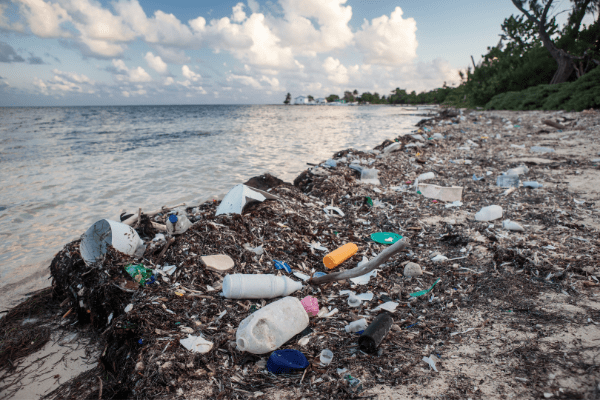Coca-Cola, Pepsi, and Unilever were found to be the world's biggest polluters of plastic in a report published by Branded on Monday. Over 11,000 volunteers in 45 countries cleaned beaches and parks to identify the worst culprits of plastic pollution.
Break free from Plastic, an environmental alliance that includes Greenpeace, Gaia, and Zero Waste, once again mobilised to conduct their annual audit in six continents. Over 330,000 plastic items were collected, primarily single-use plastics, and then organised by brand, Belga News Agency reports.
The results show that Coca-Cola, yet again, is the biggest polluter followed by PepsiCo and Unilever. This is the fourth consecutive year that these companies feature in the top five (fourth and fifth this year were Nestlé and Procter&Gamble, respectively). Coca-Cola was found to account for more pollution than both PepsiCo and Unilever combined.
For the first time since the study began in 2018, Unilever enters the top three polluters. This is particularly incongruous given that the multinational is a major partner of the United Nations Climate Change Conference, soon to start in Glasgow at the beginning of November. Given that 99% of plastic is made using fossil fuels and that oil companies increasingly draw revenue from plastic production, this makes Unilever's COP26 involvement particularly dubious.
Related News
- Belgium is global leader in plastic recycling and bioplastic innovations
- Coastline cleanup action collects 2,000 kg of rubbish
- Fossil-free diesel available in first pumps
With just one week until the conference begins, almost 300 organisations from 76 countries have signed an open letter to delegates attending, calling for an end to fossil fuel extraction and plastic production. These damaging practices could be replaced by investing in reusable solutions.
Greenpeace highlights that companies that use plastic for packaging or in their products play a large part in exacerbating the climate crisis. This owes not only to the polluting and non-biodegradable nature of the material itself but also to the fact that plastic production causes considerable greenhouse gas emissions. From the production and recycling of one tonne of plastic, around five tonnes of CO2 are emitted.

